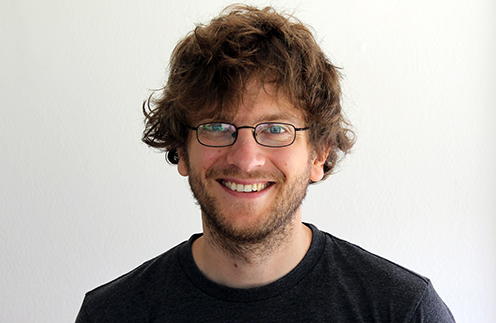Jonas Peters receives research grant from Carlsberg Foundation
“Learning by doing: How to adapt to changing environments” is the title on Jonas Peters’ research project, funded by the Carlsberg Foundation Distinguished Associate Professor Fellowship.
The Carlsberg Foundation wishes to enable the most outstanding newly appointed associate professors with international experience to consolidate their independent research group or environment. The grant - DKK2.7m - covers the period July 2018 to June 2021.

Jonas Peters is associate professor at Department of Mathematical Sciences, affiliated with the research group Statistics and Probability Theory. Before joining MATH/Copenhagen, Jonas has been leading the causality group at the Max Planck Institute for Intelligent Systems, Tübingen. Before that, he was a Marie Curie fellow at the Seminar for Statistics, ETH Zurich.
Jonas’ research interests lays in inferring causal relationships from observational distributions and he works both on theory and methodology. His work relates to areas as high-dimensional statistics, computational statistics or graphical models. He has recently published the book “Elements of Causal Inference - Foundations and Learning Algorithms”.
Jonas describes his new project on the Carlsberg Foundation homepage:
Learning by doing
“Humans mostly learn while being embedded in an environment. We learn how to induce a certain reaction from our parents, depending on their emotional state. We learn how to beat our neighbor in table tennis and how to cycle safely, even in heavy traffic.
“A truly astonishing ability of humans is how easily we can adapt our behavior when the "rules" of the environments change. Changing the table tennis bat requires only slight modifications in the execution of our strokes. And it is not too difficult to learn how to drive a tandem if we can already drive a bicycle.
“In this project, we want to study mathematical principles under which such a transfer of knowledge and skills is possible.”
The necessity to adapt
“In the last decades, major progress has been made in formalizing the problem of learning in an interacting environment into the language of data science. The success of Alpha Go is one of such examples. Less progress has been made in developing ideas how a learned strategy can be adapted to changing environments.
“In reality, however, we face such changes in environment almost all the time. They necessitate us to adapt our policies, even if they have been successful for many years. We hope that our research sheds light on how to detect when and how a policy must be adapted.”
Read more about the project on the Carlsberg Foundation homepage
Topics
Related News
Contact
Jonas Peters
Associate Professor in Statistics
Department of Mathematical Sciences
Universitetsparken 5, 2100 Copenhagen
jonas.peters@math.ku.dk
www.math.ku.dk/~peters/
